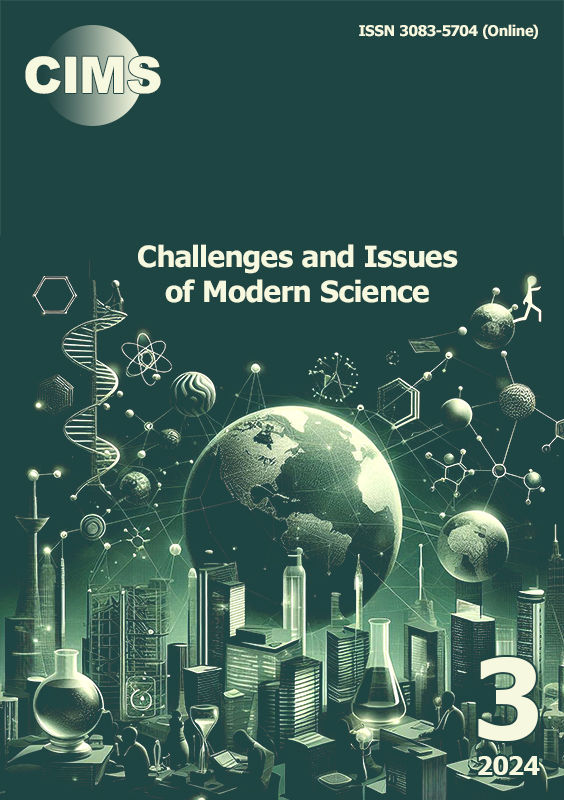Evolution of Multiple Launch Rocket Systems from Early Rockets to HIMARS and Beyond
Keywords:
Tactical missile systems, Missile technology, aerospace engineering, military conflicts, modern weaponry, artillery supportAbstract
Purpose. The article examines the evolution of multiple launch rocket systems, from early projectiles to HIMARS, and explores their future development. It focuses on HIMARS' technical advantages and its impact on combat tactics. Design / Method / Approach. The study relies on open-source data, including official reports and news on HIMARS use. Methods include analyzing precision strike effectiveness, tactical outcomes, and strategic impact through comparative analysis of different missile types in combat. Findings. Key aspects include the development of accuracy and range, the shift to precision weapons, and the impact on battlefield dynamics. HIMARS has enhanced mobility and adaptability. Theoretical Implications. This study contributes to the theoretical understanding of MLRS in modern warfare, with a specific focus on HIMARS’ evolving role in shaping new military tactics and its integration into contemporary combat doctrine. It enhances the knowledge base on precision artillery systems and their operational effectiveness. Practical Implications. The article offers recommendations for military analysts on using HIMARS and selecting appropriate missiles for combat scenarios. Originality / Value. This work provides an original analysis of the evolution of MLRS, offering a unique perspective on the technological and tactical advancements embodied in HIMARS. It serves as a valuable resource for military experts, defense analysts, and researchers interested in understanding the development of modern artillery systems and their role in future warfare. Research Limitations / Future Research. The study is based on open-source data, which may limit the scope of analysis and exclude classified information that could provide a more comprehensive view. Future research could include in-depth evaluations of missile effectiveness, long-term operational data, and HIMARS’ ongoing impact on global military strategies. Paper Type. Discussion Paper.
Downloads
References
Nistorescu, C. V. (2024). The asymmetries generated by new weapon systems and their role in achieving success on the battlefield. The Impact of HIMARS on the conflict in Ukraine, 117-128. https://doi.org/10.53477/2284-9378-24-34
Dantis, I. (2023). Challenges in the management of defense resources life cycle cost analysis for a military capability (High Mobility Artillery Rocket System-HIMARS). Defense Resources Management in the 21st Century, 18(18), 59-71. https://www.ceeol.com/search/article-detail?id=1212055
Gady, F. S., & Kofman, M. (2023). Ukraine’s strategy of attrition. Survival, 65(2), 7-22. https://doi.org/10.1080/00396338.2023.2193092
Pomper, M., & Tuganov, V. (2023). Role of Missiles in Russia’s War on Ukraine and Its Implications for the Future of Warfare. In Russia’s War on Ukraine: The Implications for the Global Nuclear Order (pp. 69-93). Cham: Springer Nature Switzerland. https://doi.org/10.1007/978-3-031-32221-1_6
Russo, J. (2018). Long-Range Precision Fires. US: Marine Corps Gazette. https://tinyurl.com/4ejr59vn
Krepinevich, A. F. (2023). The origins of victory: How disruptive military innovation determines the fates of great powers. Yale University Press. https://tinyurl.com/mruaahu7
Bailey, J. P. A. (2003). Artillery and warfare 1945-2025. http://hdl.handle.net/1826/4008
Strong, P., & Marble, S. (2011). Artillery in the Great War. Grub Street Publishers. https://tinyurl.com/48jwkrzd
Campbell, D. (2020). Soviet Airborne Forces 1930–91 (Vol. 231). Bloomsbury Publishing. https://www.ospreypublishing.com/ca/soviet-airborne-forces-193091-9781472839565/
Qian, L., Chen, G., Tong, M., & Tang, J. (2022). General design principle of artillery for firing accuracy. Defence Technology, 18(12), 2125-2140. https://doi.org/10.1016/j.dt.2022.09.001
Harrison, R., & Evans, D. (2019). Artillery in the Great Patriotic War: Innovation and Evolution in Soviet Firepower. Journal of Slavic Military Studies, 32(1), 58–77. https://tinyurl.com/48jwkrzd
Jamie Prenatt (2018). Katyusha: Russian Multiple Rocket Launchers 1941–Present. Oxford: Osprey Publishing. https://www.ospreypublishing.com/us/katyusha-9781472810861/
Hill, A. (2021). The Red Army and the Second World War: Assessing Combat Effectiveness. Cambridge: Cambridge University Press. https://doi.org/10.1017/9781139107785
Rottman, G. L. (2020). Soviet Field Artillery in World War II. Military History Review, 45(2), 201–219. https://tinyurl.com/ym5c8nrn
Du Plessis, J. L. (2023). Artillery in the challenges of future warfare. South African Ballistics Organisation, 1. https://tinyurl.com/5fx3p4y4
Downloads
Published
Issue
Section
License
Copyright (c) 2024 Mykola Bondarenko, Volodymyr Habrinets, Mykhailo Vorobei (Author)

This work is licensed under a Creative Commons Attribution 4.0 International License.
All articles published in the journal Challenges and Issues of Modern Science are licensed under the Creative Commons Attribution 4.0 International (CC BY) license. This means that you are free to:
- Share, copy, and redistribute the article in any medium or format
- Adapt, remix, transform, and build upon the article
as long as you provide appropriate credit to the original work, include the authors' names, article title, journal name, and indicate that the work is licensed under CC BY. Any use of the material should not imply endorsement by the authors or the journal.



















